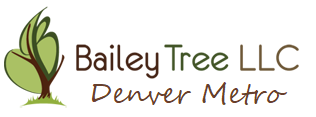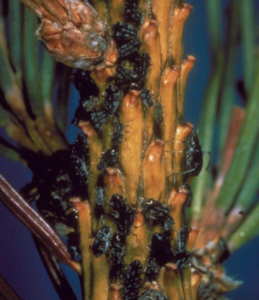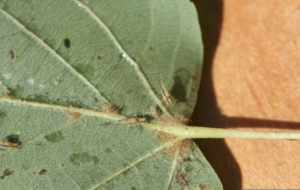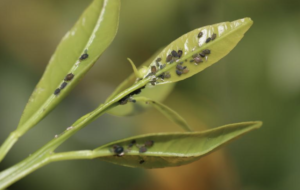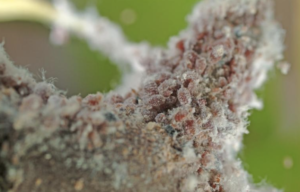Aphid Treatment
If you've recently discovered Aphids, contact us today for a free estimate. We have multiple multiple ISA-certified arborists on staff, plus multiple college degrees, which makes us the most educated and experienced experts in Denver for treating aphids. We can help solve the problem immediately!
What is all over my car and patio table?
Over 350 species of aphids call Colorado home. Aphids support themselves via siphoning the sap from the plant.
Aphid feeding patterns dependent upon population threshold results in wilting, dieback of shoots/buds, and leaf curling. Here are just a few common aphids found in Denver:
Not all aphids attack plants and/or cause damage. Aphids are a species of insect that are fairly host specific and oftentimes over-winter on alternate host species.
Their waste is called Honeydew. It tends to cover leaves, branches, and anything else it encounters, underneath it. It becomes the perfect growing medium for black sooty mold. The feeding activity and the sooty mold can cause reduced food production, aesthetic issues, and overall poor plant performance. Some natural predators include Lady Beetle larvae and Lacewings, among others.
Our arborists can visit your property and assess the needs for preventive and curative treatments through our Integrated Pest Management (IPM) solutions.
Aphid Treatment
Photo credit for this page:
Edward H. Holsten, USDA Forest Service, Bugwood.org
Whitney Cranshaw, Colorado State University, Bugwood.org
Gerald Holmes, Strawberry Center, Cal Poly San Luis Obispo, Bugwood.org
Joseph Berger, Bugwood.org
